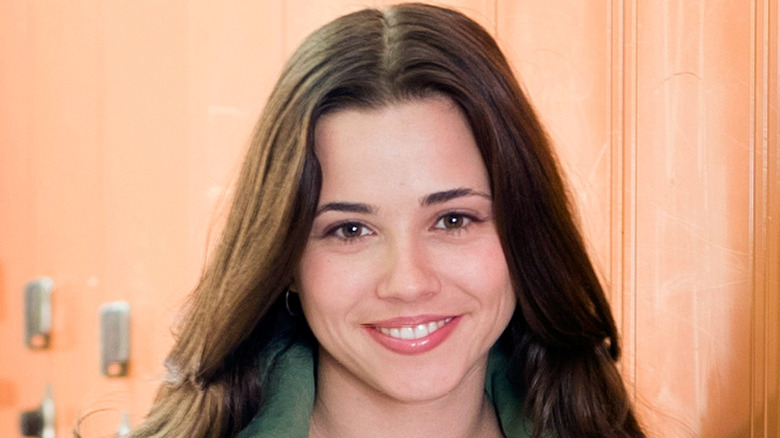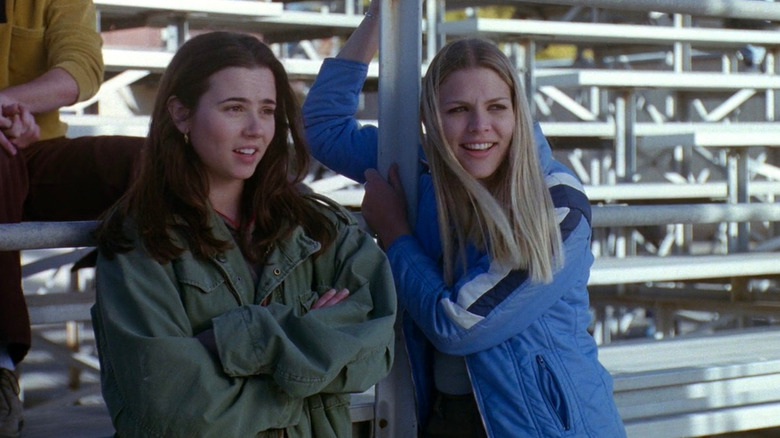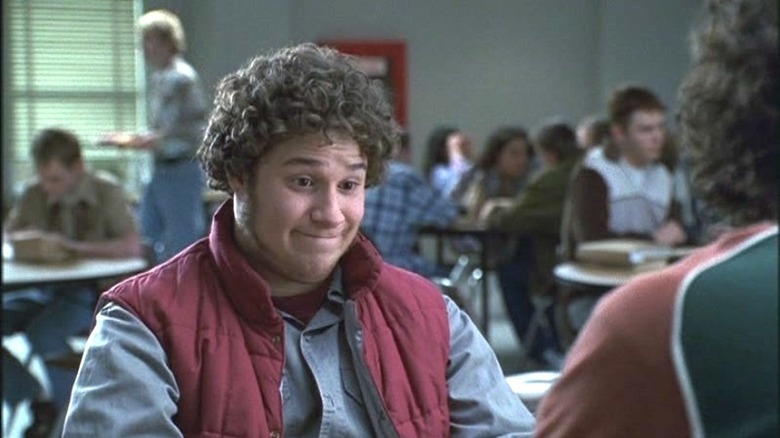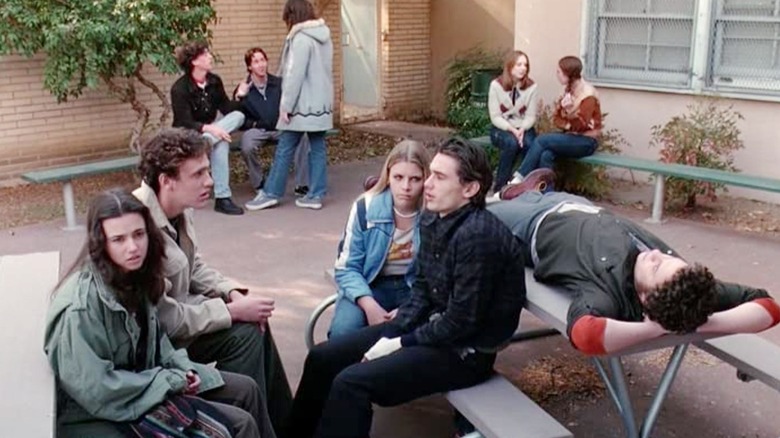The Real Reason We Never Saw Freaks And Geeks Season 2
On the list of great TV shows that only got a single season, "Freaks and Geeks" has to rank pretty high. The show was beloved by fans when it aired, and it's only gained additional acclaim in the years since it was canceled in 2000, midway through its first season on NBC. The series, which followed a group of teenagers through high school in 1980, focused specifically on the Weir family.
Lindsay (Linda Cardellini), was a good girl gone bad who decided to make friends with the "freaks," while her younger brother Sam (John Francis Daley) spent his days hanging out with a group of "geeks." As the show's legacy has grown in the years since it aired, many fans have been wondering why the show didn't receive a pickup for additional episodes. As it turns out, ratings weren't the only thing that killed "Freaks and Geeks."
Paul Feig and Judd Apatow refused an attempted revival at MTV
Even after NBC canceled "Freaks and Geeks," there remained calls to create a revival along the lines of the reboots that so many other shows have received in recent years. So far, those haven't come to fruition, but series creator Paul Feig and executive producer Judd Apatow recently revealed that there was actually a secret offer to save the show shortly after news broke that it had been canceled.
"When the show was canceled, there was an offer from MTV to continue making the show at a much lower budget," Apatow said in an interview with Collider. "And we all decided we didn't want to do a weaker version of the show."
Feig and Apatow said that "Freaks and Geeks" wouldn't have been able to continue in the same way that it had. "I remember hearing that [MTV offered to pick us up]," Feig said. "We probably just had to lose so much stuff and music and budgets. We were already always strained on our budget as it was."
Feig said that he and Apatow were okay with the decision, but he did wonder after the fact if the MTV version would have been possible. "And then very quickly after the decisions were made, then you're kind of like, 'Oh my God, what did we do? Could we have pulled it off if we had done it?'" he recalled.
A hectic airing schedule helped kill Freaks and Geeks
The factors that contributed to the show's death were numerous. "Freaks and Geeks" had an 8 p.m. time slot on Saturdays, which wasn't usually a night where scripted series meant for success aired. "You hear Saturdays at eight and you think, 'Who's home Saturday watching television?'" Dreamworks development executive Justin Falvey told Vanity Fair. "But we also thought it was an opportunity: the bar's really low. It was like coming in second or third place — it was qualifying for the next round."
After just 12 episodes were aired, though, the show was canceled by NBC. The cancellation was in part due to the series' low ratings. As Judd Apatow told Vanity Fair, the show was going up against the tenth season of 'Cops,' and it was losing. Although the ratings were certainly an issue, they weren't the only thing that killed the show.
"We were on for two weeks, off for four weeks because of the World Series," Paul Feig explained. "[Then we were] on for another six and then off for two months, moved, put up against 'Who Wants to Be a Millionaire.'"
The inconsistent airing schedule made it hard for the show to attract an audience, and "Who Wants to Be a Millionaire" was a ratings juggernaut at the time when "Freaks and Geeks" was struggling to survive. Feig also pinned some blame on the "Mary and Rhoda" reunion TV movie, which aired at the same time.
Network executives wanted changes made
Although scheduling was a huge part of why "Freaks and Geeks" struggled with its ratings, there were also disagreements among NBC's top brass over what direction the show should go in. When "Freaks and Geeks" was airing, Garth Ancier was the head of NBC Entertainment. In providing feedback on the show, he suggested that he wanted the show's characters to have "more victories," according to Vanity Fair. Feig acknowledged that the feedback was meant to be constructive, but said that Apatow didn't always take it that way.
"The irony was that the network was very, very supportive," the "Ghostbusters" director said. "The interference we had was the interference of people that wanted to make it as good as they could. But Judd was a screamer back then. He would take them on hard-core."
Apatow said that the process of cancellation was slow and that the series lived in "purgatory" for a while. Instead of outright canceling the show, NBC officials first decided they wouldn't order any more episodes.



